Every year the CSEG Scholarship Committee awards scholarships to deserving candidates in continuing education across Canada. In the 2016 scholarship year, 42 high-quality applications were received from across Canada and 12 scholarships were awarded. Eleven awards of $2,000 were made to geophysics students enrolled in university degrees and one award of $1,000 was made to a student technologist.
In order to qualify for a university student award, students must be enrolled at a Canadian university in an academic program leading to a career in exploration geophysics. Scholarships are awarded on the basis of academic performance, financial need, interest in geophysics and extra-curricular activities. In 2012, the Foundation introduced a new scholarship in response to the emergence of geoscience technology programs across the country. To be eligible for this scholarship, students must be enrolled full-time at an accredited educational institution in Canada leading to a degree in geoscience technology. In addition to continuing the award of technologist scholarships, the Foundation awards two new university entrance scholarships to high school students. Scholarships are awarded to students who are planning on pursuing a science-based post-secondary education or are the children of CSEG members. High school scholarships will be awarded in July 2017.
The CSEG Scholarship Committee is part of the CSEG Foundation, and is run each year by a minimum of three volunteers tasked with assessing scholarship applications. Scholarships are funded primarily through corporate and individual donations, and through interest generated by memorial trust funds. If you are interested in contributing, we are gratefully accepting donations. Please contact a member of the committee or mail funds to the CSEG office with cheques payable to the CSEG Foundation. We ask that you clearly indicate that the funds are for a CSEG scholarship. All donations are tax deductible and a charitable donation receipt will be issued.
The CSEG Scholarship Committee would like to thank all of the generous scholarship sponsors for their support in 2016. Such sponsorship contributes greatly to the education of geophysics students, and to the advancement of the field of geophysics.
High School Scholarships 2017
Up to two high school scholarship awards of $500 will be made in 2017. To be eligible, students must be high school students entering into a science-based university program in Fall 2017 or be a dependent of a CSEG member.
Applications open March 1 and the deadline for applications is June 15. Awards will be allocated July 1 for September 2017 payment against university tuition fees.
Craig Mosher (Repsol Oil and Gas Canada Inc., cmosher@repsol.com)
Steven Kim (Independent, stevenkim.cseg@gmail.com)
Ian Watson (Imperial Oil., ian.a.watson1@esso.ca)
2016 Recipients
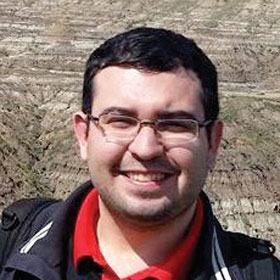
Mauricio Reyes Canales
University of Alberta
Sponsored by Apache
Mauricio Reyes Canales is a Geophysical Engineer from Simón Bolívar University in Venezuela. Before he obtained his Diploma in 2015, he was an exchange student between 2013 and 2014 at the Norwegian University of Science and Technology, where he wrote his thesis on seismic interpretation. In the fall of 2015, he became a graduate student at the University of Alberta and a member of the Microseismic Industry Consortium. In January 2017, he transferred to the Ph.D. program in Geophysics. Currently, he is focussed on hazard analysis for induced seismicity.
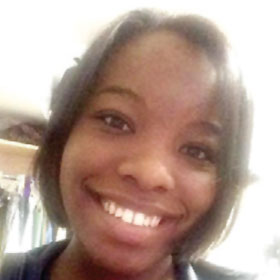
Jacqueline Huggins
Laurentian University
Sponsored by CSEG T-Wave and CSEG Foundation
Jacqueline Huggins is a first year M.Sc. student, studying at Laurentian University in Sudbury, Ontario, where she also completed her Bachelor’s degree. Her current research focusses on the application of gamma-ray spectrometry techniques on Sudbury drill core samples. Components of this work relied on Jacqueline’s ability to use aspects of geology while preparing thin sections in the lab. Jacqueline is also involved with Laurentian’s residence community as a residence assistant. As a scholarship recipient, she would like to thank the CSEG Foundation for providing assistance to students who demonstrate an interest in geophysics. Her goal, upon graduation, is to work in industry.
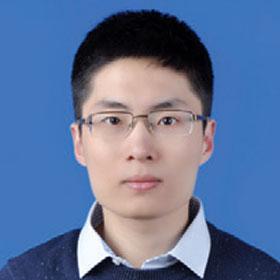
Yichuan Wang
University of Saskatchewan
Sponsored by Hampson-Russell
Yichuan Wang received a Bachelor’s degree in Geological Engineering from China University of Mining & Technology in Beijing in 2013. After receiving his Bachelor’s, he studied petroleum geophysics at Montanuniversitaet in Leoben, Austria, for approximately one year. He joined the Joanneum Research Institute of Geophysics and Geothermics, where he completed his Master’s thesis on seismic attributes. Currently Yichuan is pursuing a Ph.D. in Geophysics from the University of Saskatchewan, where his primary interests include acoustic-impedance inversion, elastic impedance, and time-lapse seismic monitoring.
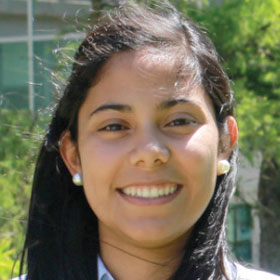
Adriana Gordon
University of Calgary
Sponsored by Arcis
Adriana Gordon completed her B.S. degree in Geophysics in June 2015 from Simón Bolívar University in Venezuela. During her stay at the University of Calgary in fall 2014, she did a research project with CREWES for six months as a visiting student. Adriana formally joined CREWES in the following year to pursue a M.Sc. Degree in Geophysics under the supervision of Dr. Don Lawton. Her research interests include seismic data processing, time-lapse monitoring and carbon capture storage.
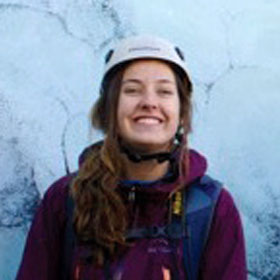
Meghan Sharp
University of British Columbia
Sponsored by Athena Resources
Feeding her curiosity and passion for the individuality of each planet, Meghan Sharp is completing her third year of an Undergraduate degree in Geophysics at the University of British Columbia in Vancouver. A lifestyle that combines the outdoors (through skiing, hiking, climbing, and surfing) with a need to know why and how drives her to work towards understanding geophysical phenomena. She aspires to research many topics throughout her career, ranging from volcanology to glaciology, snow formation, and planetary science. After returning from her studies abroad at the University of Iceland, Meghan will kick-start her research career in remote sensing at the National Research Council of Canada’s Flight Research Laboratory.
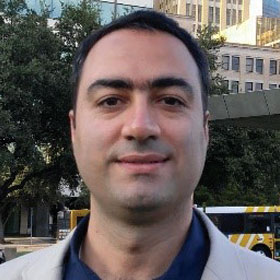
Shahpoor Moradi
University of Calgary
Sponsored by CGG
Shahpoor Moradi earned his B.Sc., M.Sc. and Ph.D. in theoretical physics from Razi University in Kermanshah, Iran, where his research was focussed on quantum fields and quantum information. After finishing his Ph.D. in 2006, he held a faculty position at Razi University. He also worked as a visiting researcher in several institutes such as the Institute for Quantum Computing and the Perimeter Institute in Waterloo, ON, and the Institute of Quantum Information Sciences here in Calgary, AB. In 2013, Shahpoor joined CREWES and is currently focussing on seismic inversion and anelastic scattering.
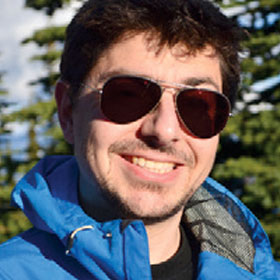
Max Salman
University of Waterloo
Sponsored by “In the Rings” Doodlespiel Scholarship
Max Salman is a Master’s degree candidate at the University of Waterloo specializing in geophysics. His main area of research involves the use of unmanned aerial vehicles and geophysical methods for precision agriculture. Max also completed an Honours Bachelor’s degree in Geology at the University of Waterloo and is the holder of a Canadian Commercial Pilot License. The two skills fit very well together to lead to a career in airborne geophysics, where Max has worked as a processor, operator, co-pilot, and project manager.
Max has many extra-curricular interests, and is involved with several student groups at the University of Waterloo. He is on the Executive of the Graduate Students Association (GSA-UW) and is the Treasurer of the Ontario Graduate Students’ Alliance (OGSA). In addition to these organizations, Max is the current President of the University of Waterloo Geophysical Society (UWGS), which is a Student Chapter of the Society of Exploration Geophysicists (SEG). Finally, in 2016, he was the President and an instructor of the University of Waterloo Swing Dance Club (UWSDC).
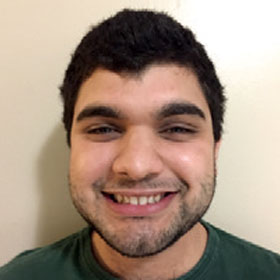
Deep Inamdar
McMaster University
Sponsored by Repsol Oil and Gas Canada Inc.
Deep Inamdar is a fourth-year Undergraduate student enrolled in the Honours Integrated Science program with a concentration in Mathematics at McMaster University. He is expected to graduate summa cum laude at the end of April. Under the direction of Dr. Carolyn Eyles, Deep was inspired to explore the intersection of physics and geography. His mathematical studies gave him the necessary tools to fully study this relationship. This led to his work with the National Research Council (NRC), where he focussed on concepts surrounding hyperspectral imaging that encompasses many scientific disciplines, with added support from the European Space Agency.
After completing his Undergraduate degree, Deep will continue interdisciplinary study at McGill University in the School of Geography, where he will pursue a Master’s degree. He will work under the co-supervision of Dr. Margaret Kalacska and Dr. George Leblanc of the NRC. Deep would also like to graduate with a Ph.D in Geophysics and work for the National Research Council of Canada at the Flight Research Laboratory.
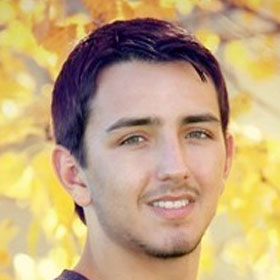
Taylor Fink
SAIT
Sponsored by Seisware
Currently, Taylor is attending Southern Alberta Institute of Technology (SAIT) and is enrolled in the Geoscience Information Technology program. From the courses that Taylor has completed in this program, he has come to understand the importance of geophysics and its applications to geophysical software. Upon graduation from this program, Taylor plans to enter the Bachelor of Geographic Information Systems program and to continue his career in the oil and gas industry.
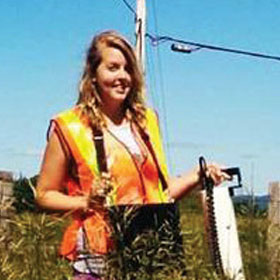
Melanie Postman
Western University
Sponsored by Pulse Seismic
Melanie Postman is completing an Honours B.Sc. in Geophysics at Western University with the intention of achieving a professional designation as a geoscientist. Her geophysical interests include seismic, resistivity/IP methods as well as seismic hazard analysis, especially the field work and processing aspects, in Canada. Recently, she has conducted a passive seismic research study for her Undergraduate thesis that focussed on analyzing the surface vibrations of a wind turbine to produce an empirical relationship between vibration attenuation and distance. Between 2015 and 2016, she has participated in the Western Science Internship Program and interned as a processing geophysicist at Sander Geophysics Ltd. in Ottawa, ON. Through this program, Melanie acquired training and experience in airborne geophysical data processing and acquisition over the course of 16 months. As a member of the Society of Exploration Geophysicists’ (SEG) student chapter at Western, Melanie assists in the organization of several fundraising and geophysical outreach campaigns. She has also received the NSERC Undergraduate Student Research Award (USRA) and will be conducting research at Western this summer with Dr. Sheri Molnar. This research will involve performing seismic risk assessments for future earthquakes using two different risk assessment software programs to quantify the uncertainty in earthquake loss prediction. Melanie will be actively looking for employment opportunities during this time.
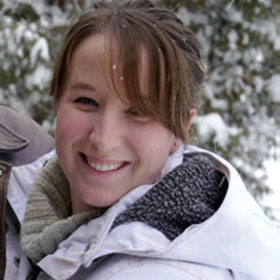
Sara McPeak
Carleton University
Sponsored by Rob Shugg
Sara McPeak is a Master’s student studying Earth Sciences under the supervision of Dr. Claire Samson at Carleton University. Her research focusses on 3D imaging of geological structures and estimation of surface roughness from point clouds at different scales. She is involved with providing undergraduate and teaching assistant mentorship by conducting various workshops for students to help them succeed in their academic program and prospective careers. After completing her Master’s, Sara plans to continue as a Ph.D. student at Carleton University under the supervision of Dr. Claire Samson on a new project entitled “Using passive seismic detectors to map overburden thickness in a permafrost-rich environment with applications for diamond exploration: a feasibility study”. Sara is enthusiastic about the new project this summer and her continuation in the field of geophysics.
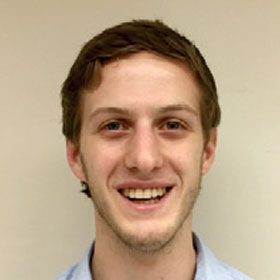
Chris Williams
Memorial University of Newfoundland
Sponsored by Imperial Oil & Ian Watson
Christopher Edward Lloyd Williams is a fourth year student enrolled in the Faculty of Science, Memorial University of Newfoundland (MUN). He is majoring in Earth Science with a minor in Physics. His geophysics interests involve the processing and interpretation of seismic data as well as incorporating potential field data to interpreted seismic data to gain regional context for the area of interest. His interests led him to compete in the Imperial Barrel Award (IBA) last winter. In addition, Chris has previous experience taking a summer position with Statoil in St. John’s, Newfoundland, and has worked for the Department of Natural Resources in core storage facilities. While at MUN, he has developed code in microseismic detection. He has also had membership in the Canadian Society of Exploration Geophysicists (CSEG), Society of Exploration Geophysicists (SEG), and American Association of Petroleum Geologists (AAPG).
Chris has an active lifestyle in the summer months when he plays football and soccer, goes camping, boating, fishing, jogging and hiking. During the winter, he enjoys volleyball, basketball and snowmobiling. Chris will be pursuing his Master’s degree at MUN, where he will spend his time researching shallow-surface geohazards offshore Newfoundland.











Share This CSEG Report